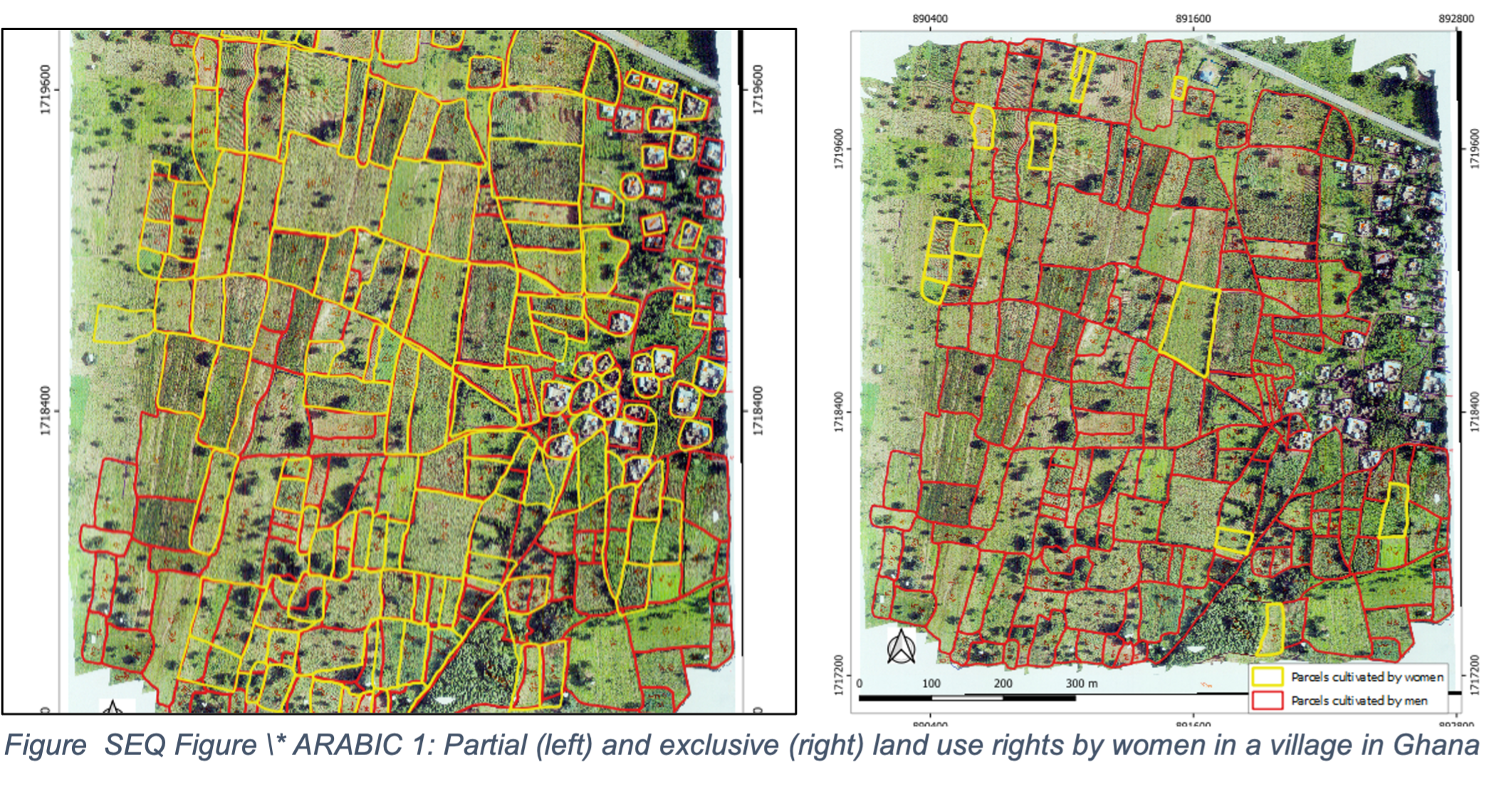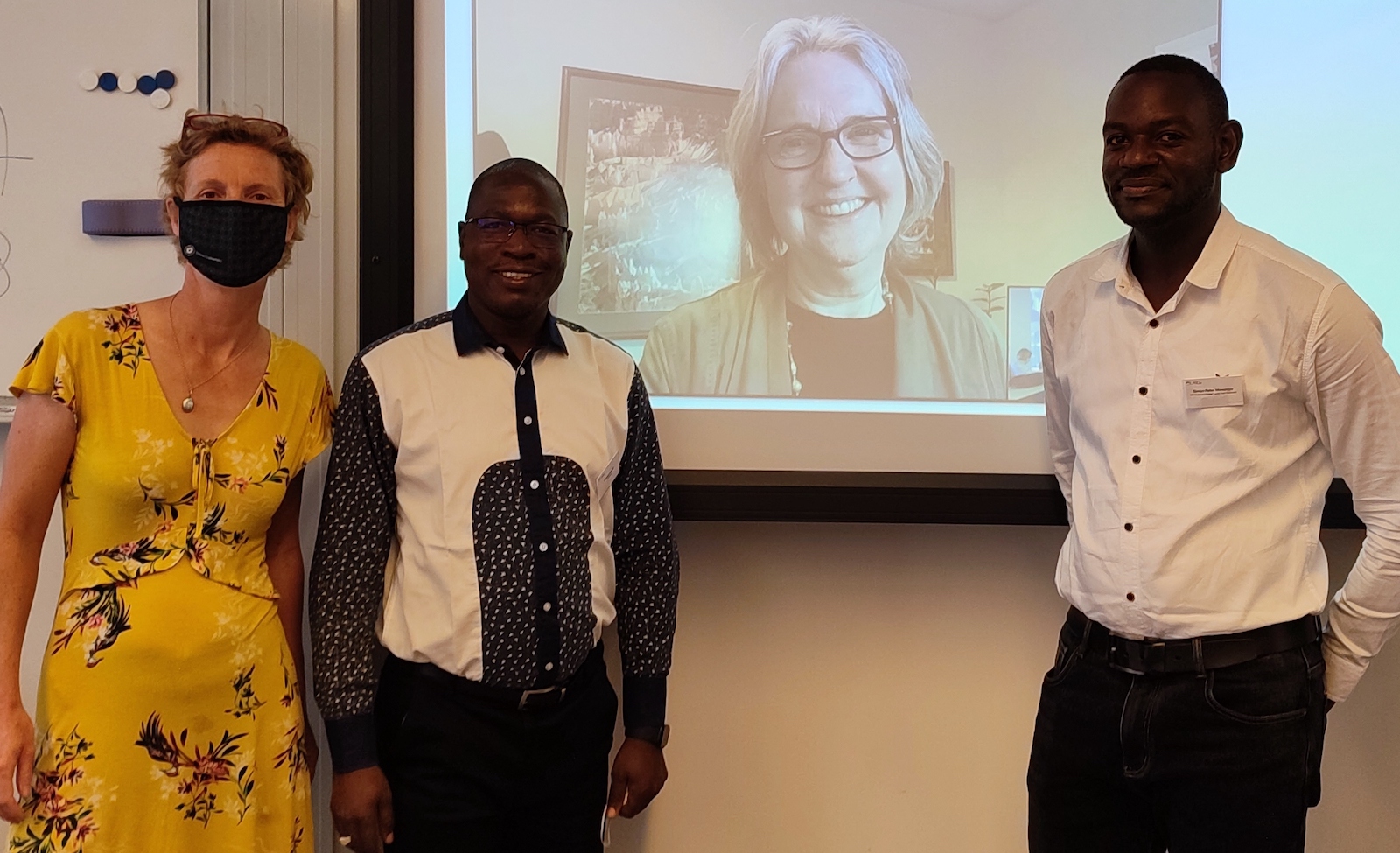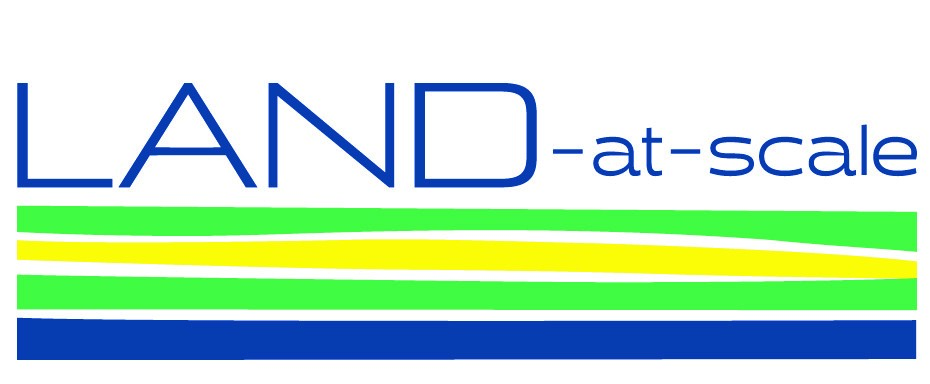Le programme LAND-at-scale vise à appliquer des approches transformatrices de genre à la gouvernance foncière dans ses projets. Le genre était donc l'un des thèmes de discussion lors des journées d'échange du programme LAS en juin, lorsque les partenaires de projet du monde entier se sont réunis à Utrecht, aux Pays-Bas. Les partenaires de projet des différents pays ont partagé leurs contextes, leurs défis et leurs outils pour améliorer les droits fonciers des femmes (et des jeunes) grâce à leurs interventions. Ce blog décrit les tendances et actions communes à tous les projets, et est enrichi d'idées supplémentaires issues de la Conférence annuelle LANDac 2022, de l'Université d'été LANDac sur la gouvernance foncière, et d'un webinaire antérieur sur la transformation du genre.
Contextes de pluralité
Il existe des différences importantes entre les terres publiques et les terres coutumières, et entre les régimes fonciers formels/légaux et informels. Les régimes fonciers coutumiers et informels basés sur des droits de propriété et d'utilisation communs sont par essence équitables du point de vue du genre. Cependant, en combinaison avec des régimes (légaux) qui institutionnalisent la propriété, ces droits de propriété ont tendance à être accordés aux hommes. Par exemple, le Mozambique a une constitution progressiste dans laquelle les terres sous régime coutumier appartiennent à l'État. En vertu de cette constitution, les hommes et les femmes ont des droits égaux à la terre. Dans la pratique cependant, les droits des femmes à posséder des terres sont entravés par les pratiques coutumières. Au Rwanda, les partenaires du projet ont constaté que seules quelques femmes recourent à la justice formelle pour remédier aux injustices du régime traditionnel. Dans le contexte somalien, on observe qu'il y a beaucoup de ménages déplacés dirigés par des femmes dans les zones urbaines ciblées par LAS, mais que dans les structures locales d'administration foncière, il n'y a pas de femmes. Alors que les femmes peuvent avoir certains droits fonciers informels, la propriété reste souvent aux mains des hommes.
Un exercice de cartographie au Ghana, présenté pendant l'université d'été LANDac par le point focal genre de la gestion des connaissances de LAS, a permis de visualiser comment ces positions inégales se manifestent sur le terrain (voir Figure 1). Les lignes jaunes représentent les droits fonciers des femmes, les lignes rouges ceux des hommes, avec des droits fonciers partiels à gauche et des droits exclusifs à droite. L'image montre clairement que les femmes ont des droits partiels sur de nombreuses parcelles, mais que pour un petit nombre de ces parcelles seulement, elles ont des droits exclusifs, sans interférence des hommes. Cela illustre le fait que les normes traditionnelles et culturelles peuvent, dans la pratique, transformer les femmes en utilisatrices des terres, par opposition aux hommes qui en sont généralement les propriétaires et les décideurs.

Ces conclusions sont importantes pour le programme LAND-at-scale. Les interventions de délimitation et d'enregistrement des terres qui s'appuient sur les lois nationales offrent des espaces pour affirmer les rôles masculins de pouvoir et d'autorité - en tant que chefs de famille - selon leurs traditions coutumières. Les processus d'institutionnalisation, de délimitation et d'enregistrement des droits fonciers dans des contextes de pluralité présentent donc un risque potentiel de marginaliser les droits fonciers des femmes .
Outils et stratégies
Pour lutter contre les inégalités entre les sexes en matière d'accès aux fonciers et à la justice (foncière), les partenaires du projet LAND-at-scale ont conçu plusieurs stratégies et outils. La formation est une voie importante pour renforcer les capacités des femmes, et des hommes, afin de permettre une participation significative des femmes vers une plus grande égalité des droits. En Ouganda, les partenaires du projet déploient à la fois la formation sur les critères d'évaluation du genre et la formation sur la transformation des normes sociales de GLTN, tandis qu'au Mozambique, un élément clé de l'intervention de LAS est la formation de femmes parajuristes. L'engagement avec les universités pour développer les connaissances locales sur les aspects juridiques est également mis en œuvre. L'équipe de gestion des connaissances ajoute aux connaissances sur l'inclusion des femmes, et d'autres groupes vulnérables, dans les conventions locales par le biais de recherches locales au Mali.
Une deuxième approche consiste à inclure activement les femmes dans les activités de cartographie et d'enregistrement des terres. Des titres fonciers conjoints nommant à la fois le mari et la femme, ou des titres fonciers familiaux, sont remis pour reconnaître et enregistrer les droits des femmes et des jeunes. C'est le cas par exemple en Ouganda et au Burundi. Malgré ces initiatives, l'impact à long terme de ces enregistrements conjoints suscite des inquiétudes. Les transactions foncières ultérieures restent largement informelles, ce qui peut porter atteinte aux droits des femmes. L'équipe de gestion des connaissances a entamé des recherches sur les effets à plus long terme de l'enregistrement des terres sur les droits fonciers et la sécurité d'occupation des femmes.
Un engagement significatif - avec les femmes et les hommes
Au-delà du foncier
Dans l'ensemble, les approches transformatrices de genre en matière de gouvernance foncière s'inscrivent dans un système beaucoup plus large de traditions, de coutumes et de religion. Pour parvenir à un changement, les partenaires du projet indiquent qu'il est nécessaire d'opérer une transformation culturelle complexe où les préjugés et les pratiques historiques profondément enracinés doivent être combattus, et les mentalités des hommes et des femmes modifiées. Il s'agit d'un processus qui nécessite du temps, s'étendant bien au-delà des projets LAND-at-scale. Le programme LAND-at-scale s'efforce de contribuer à ces transformations plus profondes par le biais des interventions sur le terrain, et par la construction et le partage de nouvelles perspectives sur le genre et la terre avec les parties prenantes au-delà du programme.
À propos de la série de blogs Land-at-Scale
LAND-at-scale est un programme de soutien à la gouvernance foncière pour les pays en développement, financé par le ministère des Affaires étrangères des Pays-Bas et mis en œuvre par l'agence néerlandaise Enterprise & Development. LAND-at-scale vise à contribuer à une sécurité foncière et un accès à la terre et aux ressources naturelles justes et équitables pour tous. Cette série de blogs présente les approches de gestion des connaissances dans le programme Land-at-Scale ainsi que les résultats des projets. .





